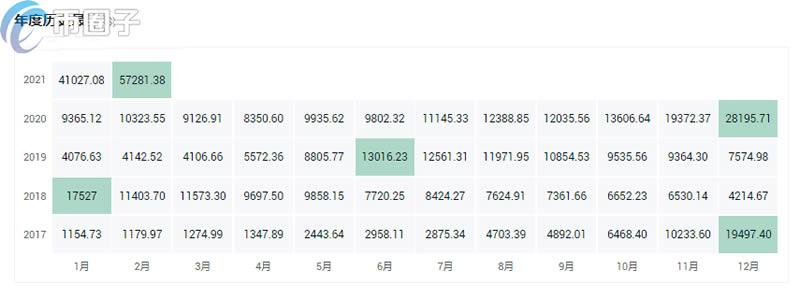比特币升值评价400字
How Bitcoin Data Adds Value
Bitcoin, the first cryptocurrency, has garnered significant interest in recent years. The underlying technology that powers Bitcoin, known as blockchain, is often hailed for its transparency, security, and decentralization. However, beyond the allure of digital currencies, the data generated by Bitcoin transactions and blockchain activities can also provide valuable insights and opportunities. Here's how:

Bitcoin data can be used for market analysis to understand trends, trading patterns, and investor sentiment. By analyzing transaction volumes, wallet movements, and trade volumes, analysts can gain insights into the market dynamics and make informed decisions.
Bitcoin data can help in assessing and managing risks associated with cryptocurrency investments. By monitoring onchain transactions and addressing potential vulnerabilities, investors and businesses can enhance their risk management strategies.
With increasing regulatory scrutiny in the cryptocurrency space, Bitcoin data can assist in ensuring compliance with antimoney laundering (AML) and Know Your Customer (KYC) regulations. By tracking and analyzing transactions, businesses can demonstrate transparency and adhere to regulatory requirements.
Blockchain data can be utilized to enhance the security of cryptocurrency platforms and wallets. By identifying unusual activities or suspicious transactions, security measures can be bolstered to protect users' assets and prevent fraud.
Bitcoin data can be leveraged for predictive analytics to forecast market trends and price movements. Through advanced data analysis techniques, such as machine learning and artificial intelligence, patterns in Bitcoin data can be identified to make predictions about future market behavior.
Entrepreneurs and businesses can explore new opportunities by harnessing Bitcoin data. By developing innovative products and services that cater to the needs of cryptocurrency users, businesses can capitalize on the growing demand for blockchainbased solutions.
By making Bitcoin data publicly accessible, the blockchain promotes transparency and accountability within the ecosystem. Users can verify transactions, track fund flows, and ensure the integrity of the network, fostering trust and confidence in the technology.
Overall, the value of Bitcoin data extends beyond its role as a digital currency. By utilizing and analyzing this data effectively, individuals and organizations can unlock a wide range of opportunities and insights in the everevolving cryptocurrency landscape.
